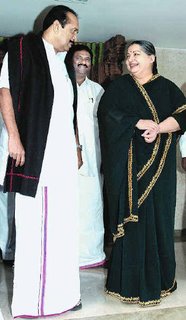 193000 dollars. 86 lakh rupees. That’s the salary that Gaurav Agarwal will earn in a year from Barclay’s in London. Gaurav is the poster -boy of the fabulous placements – both overseas and domestic - that the IIMs have received this year. And he’s not alone. The IIMs have seen a 40 per cent jump in average and top salaries this year. Now the two young lads – Gaurav and Venkatesh Shankaraman (Take home Rs 30 lakh in India) have written to the Prakash Apte, Director, IIM B asking him not to disclose salary figures of IIM grads in future. They argue that top dollar salaries when reported in the media “…tend to catch the attention of unscrupulous elements and could cause immense physical as well as psychological distress for the persons involved.” They contend that salary figures are “personal” and therefore should be kept “confidential”. In response to this ostensibly earnest appeal, Prof Apte has responded saying henceforth there will be no media announcements of B-school salaries, at least with reference to IIM Bangalore. This development exposes both the naiveté of the students and the knee-jerk response of the IIM establishment.
193000 dollars. 86 lakh rupees. That’s the salary that Gaurav Agarwal will earn in a year from Barclay’s in London. Gaurav is the poster -boy of the fabulous placements – both overseas and domestic - that the IIMs have received this year. And he’s not alone. The IIMs have seen a 40 per cent jump in average and top salaries this year. Now the two young lads – Gaurav and Venkatesh Shankaraman (Take home Rs 30 lakh in India) have written to the Prakash Apte, Director, IIM B asking him not to disclose salary figures of IIM grads in future. They argue that top dollar salaries when reported in the media “…tend to catch the attention of unscrupulous elements and could cause immense physical as well as psychological distress for the persons involved.” They contend that salary figures are “personal” and therefore should be kept “confidential”. In response to this ostensibly earnest appeal, Prof Apte has responded saying henceforth there will be no media announcements of B-school salaries, at least with reference to IIM Bangalore. This development exposes both the naiveté of the students and the knee-jerk response of the IIM establishment.The Indian Institutes of Management were set up by an act of Parliament. When the erstwhile NDA government tried to tinker with the fee structure of India’s leading business schools, the IIMs, cried foul that their autonomy was being compromised. A large section of the media, the business press, in particular, sided with them. Here was an Indian institution that attracts global talent and that has earned international repute and whose students are sought after every year by companies across the world. To let the government meddle with an institution of excellence seemed blasphemous. “Leave them alone,” said the media.
But now the IIMs have the tables turned on them. An institution set up by Government support and subsidy now seeks to rubbish the idea of transparency. Somewhere, these B-school babies seem embarrassed by their own success. They offer a naïve argument that “unscrupulous elements” will come knocking on their doors. Yeah right! the chota Shakeels and Abu Salems regularly scan the b-school placement list to hone in the next target. For starters, most top dollar employers at B-schools are listed entities; therefore, public disclosure of information about their recruitment plans is mandatory. Even if they are not, do spare a thought for those millions of b-school aspirants. When starting salaries are the yardstick for b-school ratings, it becomes the duty of the media to offer credible information regarding salaries, job offers and so on. Denying this information defeats the spirit of competition - the core spirit of the IIMs.
Rewind to 2001. The economy was not as robust as it is now. You had cases of top notch investments banks and tech companies withdrawing both placement and pre-placement offers. The students then, sought the help of the media, to argue that companies had violated all ethical norms by going back on their word. If the IIMs needed the media to campaign in their favour then, should they withhold information to serve the purpose of a few now? This selective disclosure clearly does not work. The IIMs clearly need better media management skills than they possess currently.


